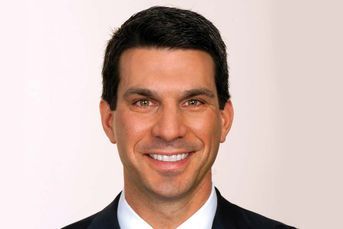Monday Morning: Making a case for not-my-fault deductions
While recently trying to justify where much of my paycheck has gone this year, I felt an unfamiliar…
While recently trying to justify where much of my paycheck has gone this year, I felt an unfamiliar jolt in my head.
It turns out that it was a brainstorm. And if I can get the government to buy in, Democrats and Republicans will never again argue over who should get a tax cut.
In fact, considering how much time Congress and the president spend quibbling over taxes, my all-encompassing plan could easily erase the ordeal for those elected officials altogether. And as we all know, that could single-handedly solve one big mess right now.
My thought is this: Americans should be allowed to take tax deductions for not-my-fault spending. All people, rich or poor, certainly end up spending money for reasons that are not their fault.
After all, if elected officials can count Palm Beach County voters who say it wasn’t their fault that they voted for the wrong person, surely the government can give us all a tax break for our expensive misfortunes.
For readers seeking insight into how the genius mind works, I arrived at this idea after 10 months of weekly donations to charitable organizations.
Basically, it started as a one-time benevolent gift in January that snowballed. But it’s not compassion compelling me, it’s superstition.
My fear is that if I throw away a single solicitation, I will be stricken with whatever disease that particular group is trying to cure.
I’ve even given money to something called the Prevent-Dead-Journalists Fund. Never heard of it, but I can’t take any chances.
But when I came clean to my household last week and admitted that our diminished cash flow was not actually due to the sudden price spike in 12-packs of Diet Coke, I realized that my cash giveaways were really not my fault.
Those organizations are preying on my psychosis.
And although I can already take deductions for charitable contributions, they really fall into the larger, more lucrative category of not-my-fault expenditures.
As an example of how effective those itemizations could be, here’s a sampling of my not-my-fault expenditures so far this year.
I bottomed out my car several months ago. I spent $622 to fix the parts that were falling off. But it wasn’t my fault. I was pressured by my squealing 2-year-old son to go airborne across railroad tracks.
I also recently had to spend $200 to get my car back after it was towed. But I did not specifically request to be towed. And despite my best efforts, the towing company would not return my car for free.
I had to give my bank $30 for a bounced check. Really, it was not my fault. I was using an adding machine to balance the checkbook, and the machine added money instead of subtracting the amount. So I wrote the check in good faith, assuming my checkbook was accurate.
My wallet was stolen in August. Sure, I left my car unlocked, but I didn’t invite anyone to rifle through it. And, strangely enough, I had $10,000 in my wallet that day.
I had to pay $3.70 in tolls on the New Jersey Turnpike on a recent trip. If anyone can convince me that the turnpike is of better quality than, say, my driveway, I’d withdraw this deduction.
By my calculation, those expenses – not to mention the charitable donations and miscellaneous other not-my-fault cash outlays – give me roughly $30,000 in itemized deductions. With that write-off, who would complain?
Of course, if I can’t convince my congressman to submit this plan as a bill, I’ll simply return to standard efforts to get the biggest bang for my tax deductions.
That is, trying to convince the Internal Revenue Service that my husband’s paisley tie, now in the hands of the Salvation Army, is in fact a collector’s item and worth $2,431.35.
Sarah O’Brien is a reporter for InvestmentNews.
Learn more about reprints and licensing for this article.





